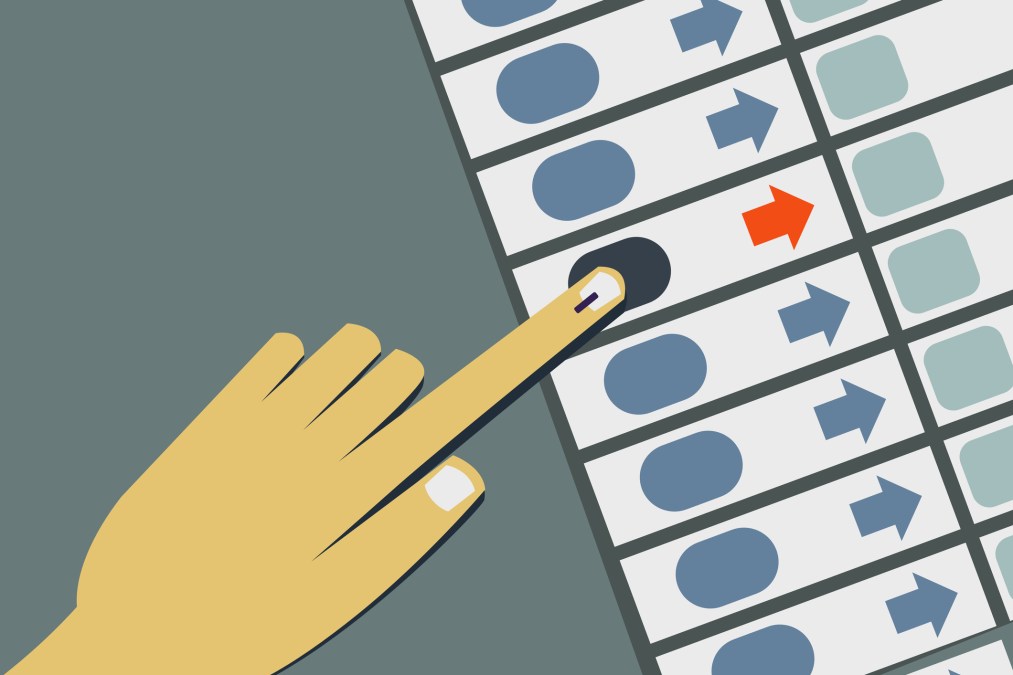Last Pennsylvania county picks new voting system in time for 2020

The last holdout of Pennsylvania’s 67 counties finally selected new voting machines that produce physical trails of individual ballots, completing the process of phasing out the commonwealth’s mostly paper-free election technology in time for the 2020 presidential election.
Commissioners in Dauphin County, which includes the capital, Harrisburg, voted this week to purchase a system in which voters hand-mark paper ballots, which are then fed into optical scanners. The new system, manufactured by the Clear Ballot Group, will replace the county’s current inventory of all-digital machines, which do not produce any verifiable, physical record of how votes were cast.
Pennsylvania officials have been scrambling for more than a year to replace nearly every piece of voting equipment across the state, which is the sixth-biggest by population and always one of the most heavily contested in presidential elections. The push for new machines was also largely motivated by criticism by election-security and cybersecurity experts that balloting devices that do not produce paper records are unreliable and prone to malfunction.
While Pennsylvanians had been voting using a mixture of digital and analog equipment, 83 percent of voters in 2018 lived in precincts that used electronic, paper-free machines.
The Clear Ballot Group system chosen by Dauphin County is one of seven platforms the state approved over the course of this and last year, with counties having until Tuesday to pick one. And though the purchase price has not been disclosed, according to the Harrisburg Patriot-News, about 60 percent of the cost will be covered by the county’s share of a $90 million fund authorized by a bill Gov. Tom Wolf signed in October.
Still, Pennsylvania’s implementation of new voting systems has been far from smooth. Northampton County, in the eastern part of the state, was flummoxed last month when its new machines — which combined a touch-screen interface with a paper ballot printer — broke down, leading to long lines and temporary vote-counting problems on Election Day. (The manufacturer, Election Systems & Software, has said other jurisdictions using the same model did not experience the same issues as Northampton County, and that “voters loved” the machines.)
For now, Pennsylvania’s leaders sounded a tone of relief after Dauphin County leaders, who had been threatened with a lawsuit if they did not choose new voting equipment, made up their minds. The county now has until the April 28 presidential primary to roll out the new machines.
“County officials have shown great leadership in advancing election security and modernization by providing new voting systems with a paper trail so voters can verify their choices before casting their ballot and officials can conduct meaningful post-election audits,” Pennsylvania Secretary of State Kathy Boockvar said in a press release from Wolf’s office.
But Chris Deluzio, the policy director at the University of Pittsburgh Institute for Cyber Law, Policy, and Security, told StateScoop choosing new balloting equipment is just the first of many steps to securing votes with confidence.
“It’s great that all Pennsylvania counties have taken steps to get new paper-based voting systems in place for 2020, although some counties are paying too much for touchscreen ballot-marking devices with voter verification and other issues,” he said. “Yet having new paper-based voting machines alone is not enough to secure the vote: things like robust post-election audits, strong chains of custody around ballots and machines, and good voter verification of ballots are all needed to shore up election security.”






